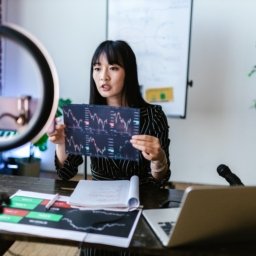Forex trading is the buying and selling of currencies on the foreign exchange market. It is one of the largest and most liquid financial markets in the world, with a daily trading volume of trillions of dollars. The market operates 24 hours a day, 5 days a week across different time zones.
The main players in the Forex market include central banks, commercial banks, hedge funds, institutional investors, and retail traders. These players trade currencies based on their expectations of future currency movements, which are influenced by various economic and geopolitical factors such as interest rates, inflation, political stability, and international trade.
To get started with Forex trading, you need to open an account with a Forex broker. There are many brokers to choose from, each with their own trading platforms, fees, and features. It’s important to do your research and choose a reputable broker that suits your trading style and preferences.
Once you have opened a trading account, you can start trading by placing orders to buy or sell currency pairs. A currency pair is the value of one currency relative to another currency. For example, the EUR/USD pair represents the value of the Euro relative to the US Dollar.
When trading Forex, you can either go long (buy) or short (sell) a currency pair depending on your market expectations. If you think the value of a currency will increase, you would buy the currency pair. If you think the value will decrease, you would sell the currency pair.
Forex trading involves risks, including the potential for losing all of your trading capital. It’s important to develop a trading strategy that includes risk management techniques such as stop loss orders and position sizing. You should also stay up-to-date with economic news and events that may affect the currency markets.
In conclusion, Forex trading can be a rewarding but challenging activity that requires knowledge, discipline, and risk management. As a beginner, it’s important to start with a small trading account and practice using a demo account before risking real money. With time and experience, you can develop your trading skills and potentially profit from the currency markets.




